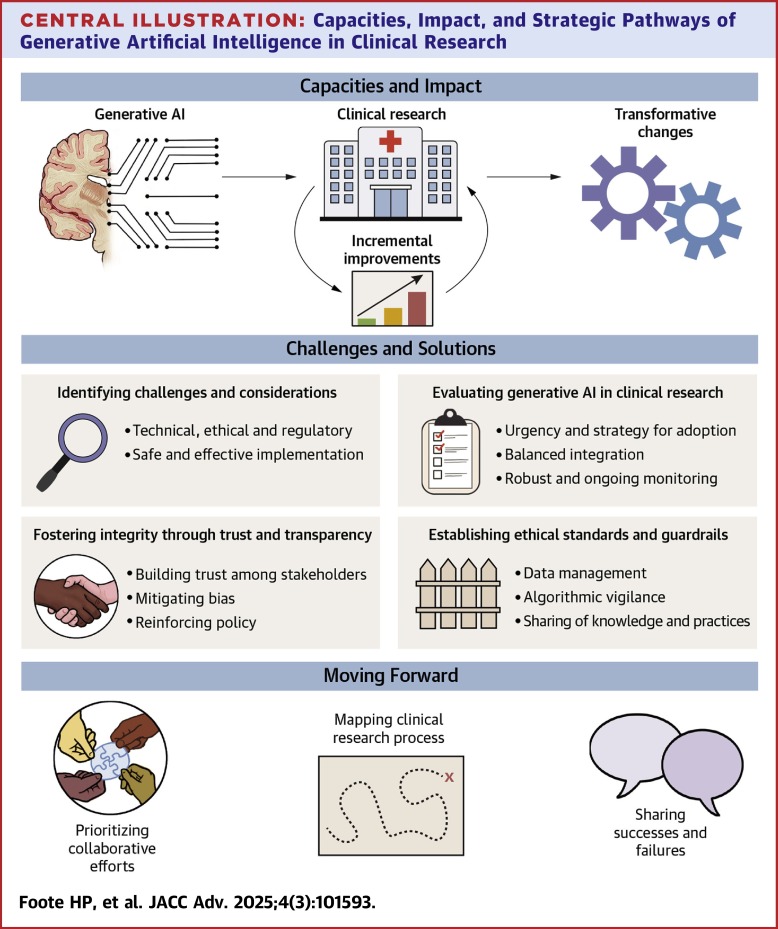To thrive in the evolving landscape of clinical research enhanced by generative artificial intelligence (AI), organizations must foresee both the opportunities and challenges inherent in this technology. The Duke Clinical Research Institute recently gathered a multidisciplinary think tank to discuss the implications of generative AI on clinical trials. As the conversation unfolded, experts from various sectors stressed that while generative AI presents significant avenues for innovation, particularly in automating documentation, increasing engagement, and enhancing trial accuracy, it is not without its pitfalls.
One of the most pressing issues in automating processes with AI is the propensity for errors. These can range from incorrect data entries during trial documentation to flawed prediction algorithms that do not accurately track participant outcomes. Such errors can lead to costly delays, misinterpretations, and ultimately affect the efficacy and reliability of a clinical trial. Addressing these errors promptly is essential for maintaining the integrity of research and ensuring participant safety.
Identifying common technical hurdles can help organizations better prepare for the integration of generative AI solutions. One frequent problem arises from API rate limits. When an application reaches its maximum allowed requests within a set timeframe, it can lead to unplanned downtimes or delays in processing. To troubleshoot this, organizations should consider implementing exponential backoff strategies, where they intelligently manage request loads by gradually increasing the wait time between retries after each failed attempt. Additionally, monitoring usage patterns can help forecast peak periods and adjust requests accordingly.
Integration issues can also plague organizations that adopt AI technologies. When connecting multiple systems—such as electronic health records, trial management systems, and data analytics platforms—data consistency typically becomes a challenge. Inconsistent data can arise from faulty mappings or misaligned formats. To mitigate these challenges, entities should develop a clear data integration plan that outlines data flow, format compatibility, and transformation protocols. Testing the integration in stages, rather than all at once, can allow for a clearer identification of failures, thus making troubleshooting more manageable.
Moreover, organizations need to confront ethical dilemmas and regulatory uncertainties that come hand-in-hand with generative AI. As rapidly evolving regulations set the stage for how this technology can be utilized, it becomes vital to stay abreast of changes in local and global guidelines. Regularly consulting with legal counsel and dedicating time to compliance training can foster an organizational culture that prioritizes risk management and ethical considerations.
The potential return on investment (ROI) of resolving these issues swiftly cannot be overstated. By minimizing errors and establishing strong protocols, organizations can increase operational efficiency, enhance the quality of clinical trials, and ultimately accelerate time to market for new therapies. In this highly competitive landscape, shortening the translational pipeline not only improves financial outcomes but also leads to better health solutions for diverse populations.
Furthermore, successful navigation of generative AI challenges emphasizes the importance of collaboration and transparency among stakeholders. Sharing information about the safety and effectiveness of AI applications fosters an environment of trust, essential for driving the field of clinical research forward. Engaging participants and community members in dialog also ensures that research is inclusive and equitably designed.
In summary, while generative AI has transformative potential for clinical research, careful consideration must be paid to the inherent challenges. By understanding common errors associated with automation—such as API limitations and integration inconsistencies—SMB leaders can implement effective troubleshooting strategies. Establishing robust management and security protocols demonstrates a commitment to integrity and helps ensure that successful AI applications contribute positively to clinical research and public health.
FlowMind AI Insight: Embracing generative AI in clinical research requires a diligent approach to error management and compliance. A proactive stance on addressing integration issues and ethical considerations not only safeguards the technology investment but also enhances the overall impact of research on patient outcomes.
Original article: Read here
2025-02-08 19:40:00

